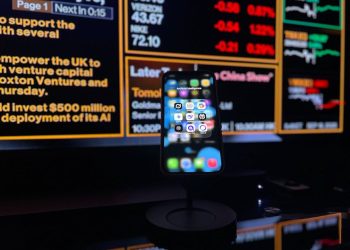No products in the cart.
AI’s Expert-Level Leap: A New Era for Professionals
AI is stepping into professional roles, achieving expert-level performance in numerous tasks. What does this mean for your career?
San Francisco, USA — The dawn of artificial intelligence has arrived not with a whisper, but with a resounding boom. Recent findings reveal that AI has achieved expert-level performance across nearly half of all professional tasks. This seismic shift is not just a technological marvel; it’s a harbinger of profound changes in the job market, workplace dynamics, and our individual careers.
As AI systems evolve, they are no longer confined to mundane tasks. They are stepping into roles traditionally held by highly skilled professionals. Think about it: machines that can draft legal documents, analyze complex financial data, and even conduct surgical procedures with precision. The report from FinancialContent outlines how AI’s capabilities are redefining what it means to be a professional in today’s economy, leaving many to wonder: where do we fit in this brave new world?

The implications are vast. For young professionals, the rapid integration of AI into the workforce presents both opportunities and challenges. On one hand, it can enhance productivity and open doors to innovative careers in AI management, ethics, and development. On the other hand, it raises questions about job security and the need for continuous skill development in an ever-evolving landscape.
Consider Sarah, a 28-year-old marketing manager in London. Just last year, she was focused on building a brand identity through social media campaigns. Now, she finds herself collaborating with AI tools that can analyze consumer behavior in real-time, generating insights that once took her a week to compile. “It’s exhilarating and terrifying at the same time,” she admits. “I have to constantly learn how to leverage these tools while ensuring my role remains relevant.”
On one hand, it can enhance productivity and open doors to innovative careers in AI management, ethics, and development.
Indeed, Sarah’s experience is not unique. As AI continues to penetrate various fields, professionals are finding themselves at a crossroads. The World Economic Forum estimates that by 2025, 85 million jobs may be displaced by a shift in labor between humans and machines. Yet, the same report anticipates the creation of 97 million new roles that will require a new set of skills. This paradoxical situation highlights the urgent need for workers to adapt.
One significant area of focus is the development of soft skills. As AI takes over more technical tasks, human-centric skills—such as creativity, empathy, and critical thinking—become invaluable assets. A report from McKinsey underscores this trend, suggesting that jobs requiring social and emotional skills are less likely to be automated. For example, roles in healthcare, education, and customer service are expected to thrive, as they require a human touch that machines simply cannot replicate.
Moreover, entrepreneurial opportunities are cropping up in the wake of AI advancements. With the rise of AI-driven platforms, individuals can now launch businesses with unprecedented ease. Freelancers and entrepreneurs are leveraging AI tools to streamline operations, enhance marketing strategies, and reach global audiences without the significant overheads of traditional businesses. Think of the small startup in Singapore that uses AI to optimize supply chain logistics, providing services that were once the domain of large corporations.
However, this brave new world is not without its pitfalls. The ethical implications of AI are a growing concern. As algorithms dictate hiring practices and performance evaluations, issues of bias and transparency come to the forefront. The challenge for businesses will be to implement AI responsibly, ensuring that these systems are fair and equitable. For workers, this means advocating for transparency and inclusivity in AI systems that impact their careers.
As we navigate this uncharted territory, it’s essential to cultivate a mindset of lifelong learning. Professionals must embrace continuous education to stay ahead of the curve. Online courses, workshops, and networking opportunities can provide the critical skills needed to thrive in an AI-driven economy. Organizations, too, bear the responsibility of fostering a culture of learning and adaptation. Companies that prioritize employee development will not only retain talent but will also position themselves as leaders in their industries.
Online courses, workshops, and networking opportunities can provide the critical skills needed to thrive in an AI-driven economy.
The future of work is not a distant reality; it is unfolding right now. As AI continues its rapid ascent, the landscape of careers will inevitably shift. Embracing this change means being proactive—seeking out knowledge, honing skills, and being open to new opportunities. The question is no longer whether AI will change our jobs but how we will adapt and thrive alongside it.
So, what does the future hold for you? Perhaps it’s time to explore that side hustle you’ve been contemplating or to dive into an online course that pushes your boundaries. The tools are at your disposal; the only question is how you will wield them in this exciting new era.











